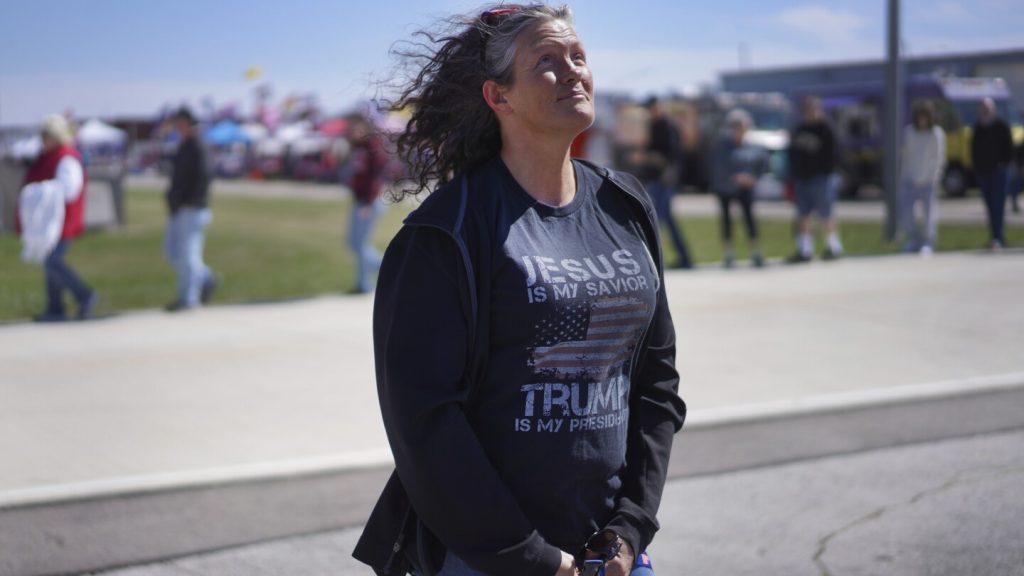Donald Trump’s campaign is heavily infused with Christian trappings, and his support remains strong among evangelicals and conservative Christians. Many supporters believe Trump shares their Christian faith and values, particularly in his opposition to abortion and LGBTQ+ rights. Despite Trump’s past conduct and current legal issues, supporters view him as a representative of a religion of second chances and a champion of Christianity and patriotism.
During the 2020 election, about 8 in 10 white evangelical Christians supported Trump, and a similar share supported him in 2016. In the 2024 campaign, Trump’s support has remained durable, even though there were other conservative Christian candidates without legal troubles to choose from in the early primaries. Trump’s strong support among white evangelicals has frustrated a minority of conservative evangelicals who see him as lacking real faith and facing serious misconduct allegations.
Supporters at Trump’s Ohio rally cited their belief that Trump has repented and is leading a new life. Many attendees prioritized Trump’s anti-abortion stance, citing his three Supreme Court appointments that led to the 2022 decision to overturn the Roe v. Wade precedent. Some supporters also emphasized the need for religion and church in society, expressing concerns about the moral compass and the state of the country.
Trump’s campaign events convey Christian nationalist themes, seeking to privilege Christianity in public life. Trump endorsed a Bible edition that includes U.S. founding documents and patriotic songs, catering to a white evangelical audience. His rallies have been likened to worship services, with Trump depicted in messianic terms in a video. Supporters see Trump as a shield against what they perceive as a woke, totalitarian onslaught threatening their values and way of life.
Despite historians disputing assertions about Christian origins of the nation or its founding documents, some Trump supporters hope for a more Christian America. They view the country as a Christian one and express a desire for public worship to be limited to Christians. Trump’s rhetoric on protecting Christians in various spheres and fighting against perceived threats resonates with his audience, particularly white evangelicals. The combination of Christian symbolism, nationalist rhetoric, and promises to prioritize Christian values marks Trump’s campaign as a continuation of his appeal to conservative Christian voters.


